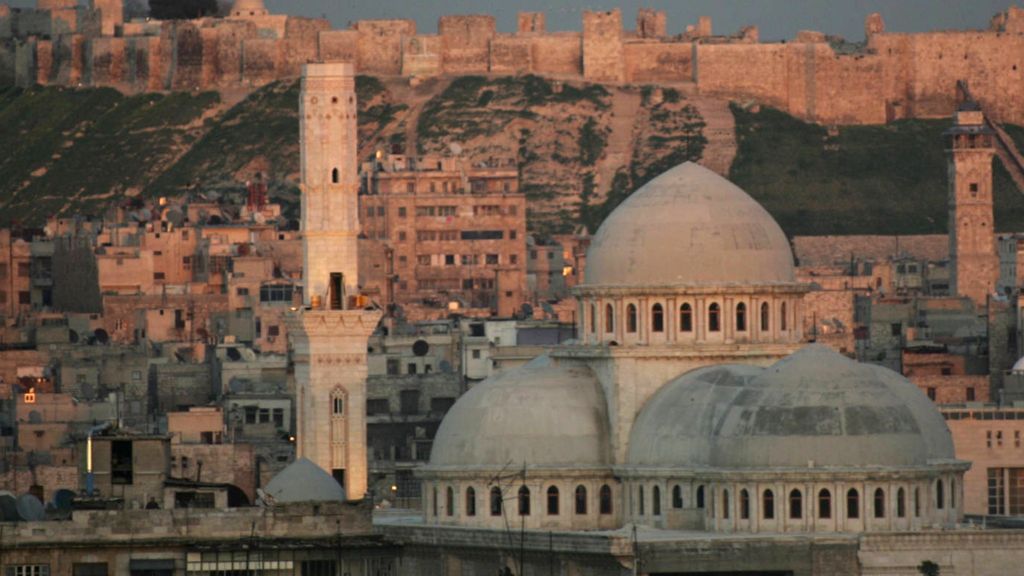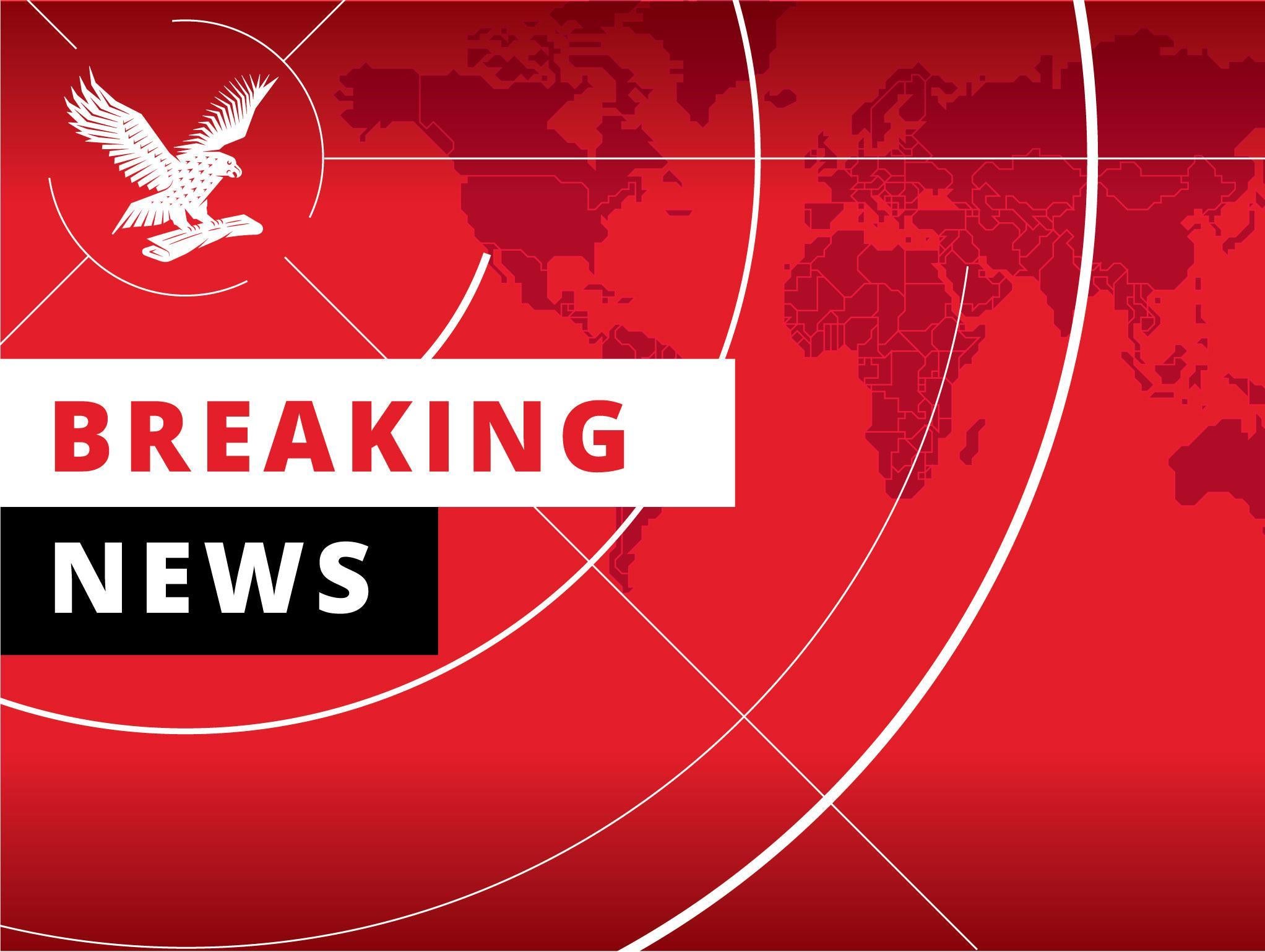At least 50 people have been killed in an air strike on a hospital in Aleppo. The US condemned the Syrian Army and urged Russia to use its influence to stop the strikes.
The previous post in our Putin in Syria column can be found here.
A new ceasefire deal has reportedly been reached between the United States and Russia, but it will exclude the province where the worst fighting is currently taking place — Aleppo province, which is also the most important to rebel groups, some of which are fighting both the Syrian regime and militants from the so-called Islamic State.
AFP Beirut Correspondent Maya Gebeily reports:
The state outlet TASS has reported that the new ceasefire will not apply to Aleppo, despite the fact that Qadri Jamil, of the opposition group Popular Front for Change and Liberation, earlier said that he was under the impression that Aleppo would be included. Jamil, who only left the Assad regime in 2013, is widely distrusted by most opposition as many believe that he has been put forward by Assad as a kind of “acceptable” opposition figure. Even Jamil seems to have been blind-sided by this move.
Aleppo is one of world’s oldest continually inhabited cities, and despite being fought over countless times, it has survived conquest and world wars and the passage of between five and twenty-two millennia.

Profile: Aleppo, Syria's second city – BBC News
Aleppo is Syria's largest city and the country's industrial and financial centre. For the first year of the uprising against President Bashar al-Assad, Aleppo saw neither the large-scale protests nor the deadly violence that shook other towns and cities.

Another medical facility has been bombed in Aleppo
Another medical facility has reportedly been bombed in Syria just days after dozens of people were killed at a hospital in Aleppo. Air strikes and shelling in rebel and government-held areas of the city resumed on Friday, with one child and five others feared injured so far. Bebars Mishal, a civil defence volunteer, told Reuters that one attack hit a clinic in Aleppo's al-Marja district, while others struck near mosques.
The previous ceasefire was shattered when the Russian air force and Syrian regime airstrikes heavily pounded rebels and civilian locations near Damascus and Aleppo. The regime has now launched an intensive effort against Aleppo, though it is facing some pushback from rebels who are attacking near Lattakia and in other locations. In other words, this new ceasefire would, if enacted, freeze the fighting anywhere the regime is vulnerable while continuing the fighting where it currently has the upper hand.
All of this has vindicated those of us who said that the Syrian regime and Russia could not be trusted to follow ceasefires, nor can they be relied upon to fight terrorism, but instead they will pursue their own goals — at the expense of civilians, and anti-ISIS rebels:

If The Goal Is To Defeat Islamic State, Don't Rely On Russia To Help
Three historic developments have taken place in Syria in the last month and a half. The first was the declaration of a nationwide cease-fire, agreed upon by President Bashar al-Assad as well as most nonjihadist factions of the Syrian opposition. The second, Russian President Vladimir Putin's announcement that Russian forces would begin a partial withdrawal from Syria.

U.S. Sending More Troops To Syria, But Islamic State Already Preparing For The Storm
On June 29, 2014, when Abu Bakr al-Baghdadi gave a speech from the Great Mosque of al-Nuri in Mosul, Iraq, announcing the formation of an Islamic caliphate, the newly proclaimed "Islamic State" did indeed have many of the hallmarks of an actual state. It had borders, patrolled by its agents.
US Secretary of State John Kerry has condemned the killings:
“We are outraged by yesterday’s airstrikes in Aleppo on the al Quds hospital supported by both Doctors Without Borders and the International Committee of the Red Cross, which killed dozens of people, including children, patients and medical personnel,” he said in a statement.
“It appears to have been a deliberate strike on a known medical facility and follows the Assad regime’s appalling record of striking such facilities and first responders. These strikes have killed hundreds of innocent Syrians.”
But what is the penalty for such a crime?
Michael Ratney, the U.S. envoy for Syria, has called for a re-commitment to the ceasefire:
“Persistent violations and attacks on civilians in Aleppo have stressed the (partial cease-fire) and are unacceptable,” Ratney added. “We are talking to Russia to urgently agree on steps to reduce violence in that area as well.”
But many Syrians believe that it’s nearly a guarantee that the regime will violate the ceasefire while the anti-Assad rebels are being asked to abide by it.
— James Miller

The Arabic-language service of Russia’s state-owned RT network has re-labelled footage of the aftermath of yesterday’s air strike on a rebel-held Aleppo as that of a shelling attack on a regime-controlled neighbourhood by Jabhat al-Nusra.
Hadi al-Abdallah, a Syrian journalist, uploaded the following graphic video of the aftermath of an air strike on the rebel-held Bustan al-Qaser and Kallaseh districts at 10:25 GMT yesterday:
According to the Syrian Local Coordination Committees (LCC) at least 12 people were killed, two of them children, in Bustan al-Qaser, and another eight in Kallaseh.
It is unclear whether the air strikes were conducted by the regime or the Russian Air Force.
Later in the day, at 12:56 GMT, RT Arabic uploaded an edited version of the same video, this time labelled as a shelling attack by Jabhat al-Nusra, the Syrian al-Qaeda affiliate that operates alongside other rebel groups (though not without clashes as seen in Idlib earlier this year).
This is despite the retention of a clear shot of a Syrian Civil Defence volunteer (Civil Defence, known as the White Helmets, cannot operate in regime-controlled territory and have been repeatedly targeted by Russian and regime air strikes.)
Meanwhile attacks on Aleppo continued today.

US State Department spokesman John Kirby condemned the strikes April 28 on the children’s hospital in Aleppo, attributing the attack to the Syrian Army.
At least 50 people have been reported killed in the strike, CNN and AAP reported.
The UN called the situation “catastrophic” and said humanitarian workers couldn’t do their jobs due to the air strikes, Reuters and VOA reported.
Said Kirby:
“The details and the circumstances of the attack are still coming in, but it sure bears all the hallmarks of the kinds of strikes that the regime has done in the past on treatment facilities, and frankly on first-responders. Once again we call on the regime to cease these absolutely senseless attacks.”
The US also urged Russia to use its influence to pressure Syrian President Bashir al-Assad to stop the strikes.
Sen. John McCain (R-AZ) said Russia was using the war in Syria to test its modern military, and that despite its pledge of withdrawal, Russia was backing Syrian forces to re-take Aleppo.
But Russia for its part denied its own involvement or that of the Syrian airforce it supports, and claimed “a plane from the international coalition” dropped the bomb,” RBC.ru reported.
TASS quoted Russian Defense Ministry representative Igor Konashenkov:
“According to the data available to us, on the evening of April 27 in the air space above Aleppo, for the first time after a long break, a plane was operating from one of the countries of the so-called “anti-ISIL coalition.”
Medicins sans frontieres confirmed that the Al Quds hospital was one they supported.

